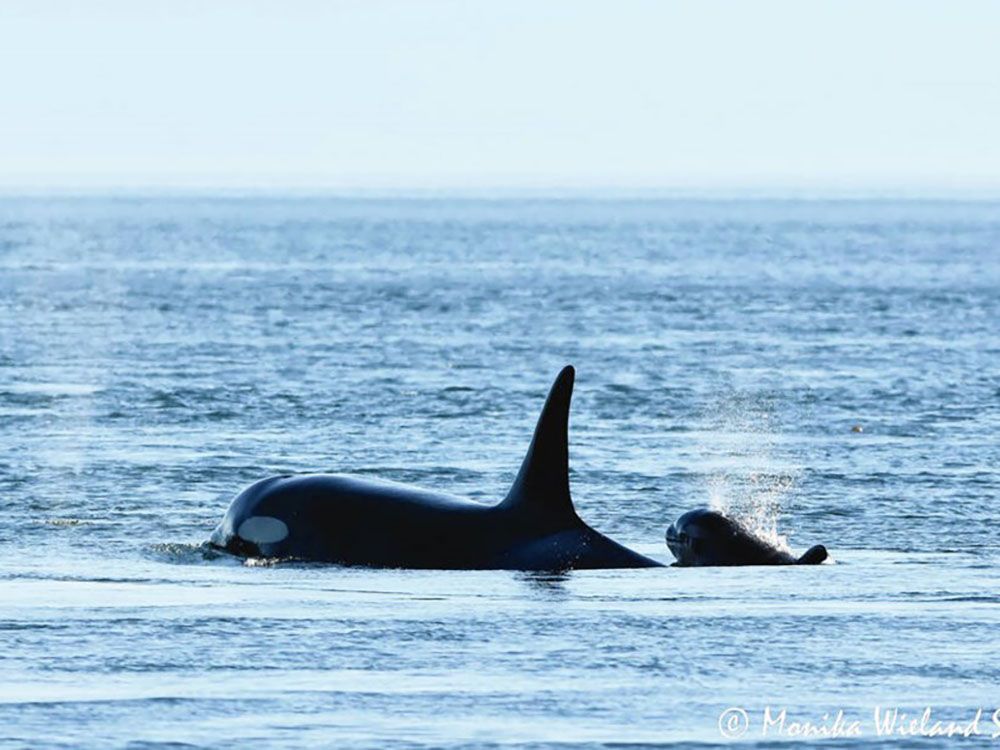B.C. is expecting its first 'significant atmospheric river' as residents in the Northwest Territories and Nunavut may face their first blizzard of the season
Published Oct 18, 2024 • 3 minute read

This weekend, Canadians should expect big changes in weather — like the season’s first blizzard — as La Nina returns with the possibility of affecting the upcoming winter.
La Nina is a term referring to unusually cold ocean temperatures in the Equatorial Pacific, per the National Oceanic and Atmospheric Administration (NOAA).
“These cold waters in the Pacific push the jet stream northward. This tends to lead to drought in the southern U.S. and heavy rains and flooding in the Pacific Northwest and Canada,” according to NOAA. “During a La Nina year, winter temperatures are warmer than normal in the South and cooler than normal in the North.”
La Nina is expected to develop over the next couple of months, said Weather Network meteorologist Melinda Singh.
It’s a possibility that most of Eastern Canada will see above seasonal conditions, she said in a video posted to X on Thursday night, while B.C. and the Prairies may see below seasonal conditions.
“But if the coldest air is located in the eastern Pacific, then over 80 per cent of the country could see below seasonal conditions this winter season,” she said.
However, this returning La Nina will be “weak and short-lived” and neutral conditions may return in time for spring, said Singh.
Advertisement 2
THIS CONTENT IS RESERVED FOR SUBSCRIBERS
Enjoy the latest local, national and international news.
- Exclusive articles by Conrad Black, Barbara Kay and others. Plus, special edition NP Platformed and First Reading newsletters and virtual events.
- Unlimited online access to National Post and 15 news sites with one account.
- National Post ePaper, an electronic replica of the print edition to view on any device, share and comment on.
- Daily puzzles including the New York Times Crossword.
- Support local journalism.
SUBSCRIBE FOR MORE ARTICLES
Enjoy the latest local, national and international news.
- Exclusive articles by Conrad Black, Barbara Kay and others. Plus, special edition NP Platformed and First Reading newsletters and virtual events.
- Unlimited online access to National Post and 15 news sites with one account.
- National Post ePaper, an electronic replica of the print edition to view on any device, share and comment on.
- Daily puzzles including the New York Times Crossword.
- Support local journalism.
REGISTER / SIGN IN TO UNLOCK MORE ARTICLES
Create an account or sign in to continue with your reading experience.
- Access articles from across Canada with one account.
- Share your thoughts and join the conversation in the comments.
- Enjoy additional articles per month.
- Get email updates from your favourite authors.
THIS ARTICLE IS FREE TO READ REGISTER TO UNLOCK.
Create an account or sign in to continue with your reading experience.
- Access articles from across Canada with one account
- Share your thoughts and join the conversation in the comments
- Enjoy additional articles per month
- Get email updates from your favourite authors
Article content
La Niña expected to affect winter in Canada.
Comparing temperatures in the ocean along the equator between now and last year, it's evident that we are in for a La Niña winter. Meteorologist Melinda Singh explains what this means for Canada. pic.twitter.com/pkHdIcyx0o
Meanwhile, this weekend, Canadians in the two northern provinces could experience the first blizzard of the season, with heavy snow and strong winds, per the Weather Network.
As of Friday morning, Environment Canada has issued snowfall warnings in parts of the Northwest Territories, as well as wind and blizzard warning for parts of Nunavut. Some areas in Nunavut were also placed under a winter storm watch.
To the west, B.C. is expecting its first “significant atmospheric river — described as long, narrow regions in the atmosphere, like rivers in the sky, that transport most of the water vapour outside of the tropics, according to NOAA.
The atmospheric river is “set to bring over 100 mm of rainfall to the South Coast and lower mainland over the weekend,” the network said. Densely populated areas in B.C. will be targeted and localized flooding is likely in certain areas.
The rainfall could turn to snowfall for some residents living in higher elevations, the network said.
“Freezing levels are expected to climb from 1,500 metres on Friday to 2,200 metres on Saturday. With the help from the atmospheric river and some Arctic air sinking southward, folks above these elevations along the coastal and interior mountains could see a hefty helping of snow,” the network explained.
Advertisement 3
Article content
In the Prairies, drastic changes are expected as Arctic air cools the region. Temperatures are expected to drop, going “from the upper teens to low single-digit temperatures by Monday,” per the network, adding that Calgary and Edmonton may see a “snow risk” in the forecast as early as next week.
“The weekend cooldown will be even more drastic in Saskatchewan and Manitoba, where highs in the low 20s will quickly fall to below ten degrees on Monday and Tuesday,” the network said.
While Canadians in Southern Ontario have already seen some light snow overnight on Tuesday, going into the weekend there will be milder temperatures. Eastern Canada will also get a break from winter weather this weekend as sunshine and light winds are expected to last into next week.
Recommended from Editorial
-

B.C. ski mountain calls off 2023/24 season over lack of snow
-

How Canadians can prepare in case of a winter blackout amid extreme cold, snowstorms
Our website is the place for the latest breaking news, exclusive scoops, longreads and provocative commentary. Please bookmark nationalpost.com and sign up for our newsletters here.
Article content
.png)
 3 hours ago
8
3 hours ago
8




































 Bengali (BD) ·
Bengali (BD) ·  English (US) ·
English (US) ·